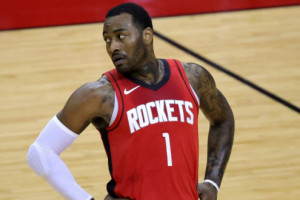Daily Fantasy NBA Cash Game Strategy
NBA is a different animal than the other three major sports in that no single event can have a large impact on either your lineup, or your position in any of your leagues. Your lineup’s score is cumulative of many small events (points, rebounds, assists, steals, blocks) that can only be obtained if your players are actually on the court.
This simply isn’t the case in other sports, and it’s why NBA must be treated very differently. It’s impossible to get lucky with a player that will see eight minutes of court time. There’s nothing he can do in that amount of time that’s going to turn him into a great play. He can’t score a 90-yard touchdown, hit a three-run home run, or score two goals despite playing on a team’s fourth line and seeing around ten minutes of ice time.
Along with minutes, there are several other factors that need to be considered when building a cash game lineup in NBA. I’m going to break them down one by one by giving both some analysis and some examples of why not considering these elements can be very detrimental to your bankroll.
Subscribe to RotoGrinders Premium to get a leg up on the competition in your contests!
Minutes
Nothing is more important than minutes in daily fantasy NBA. If a player you’ve selected isn’t on the court, he can’t do anything for you. If he doesn’t play enough minutes, he won’t be able to accrue enough stats to justify his placement in your lineup.

In cash games, it’s imperative that you select players with well-established roles and secure minutes. If a player you’ve rostered suddenly has his role reduced for matchup purposes, or just the whims of the head coach, you’re going to be in big trouble. In daily fantasy NBA, one player can’t make up for a dud from another. Your goal in cash games should be to avoid duds, and that starts by making sure all of your players are going to see enough court time to make themselves a worthwhile investment.
Role
We’ve established that minutes are important, but now we have to ask ourselves if a player is going to do enough on the court to justify a position in our lineups. A shooting guard may see 36 minutes of court time, but if he just stands in the corner hoping to knock down open three pointers, he’s not going to be a valuable asset. Make sure the player you’re selecting will be in position to score, dish out assists, grab rebounds, or accrue steals and blocks.
Injuries and Replacement Starters
Minutes and role are extremely important when building a daily fantasy NBA lineup, but the whole night can get turned upside down if a popular player is scratched late, or if an injury forces a good backup into must-play status on the evening. You absolutely must keep yourself apprised of the latest injury news, and who is in line to receive extra minutes. Not only that, you also need to know which players will actually do something with their increased role.
In basketball, missing out on the value play that everyone is on that has a big night is disastrous because, unlike other sports, players are simply not capable of having big enough games relative to other players and carrying your teams.
Coaches
I can’t stress this enough. You need to know what coaches are capable of, and if there is a possibility that their decision-making can ruin one of your players’ nights. Everyone knows that Gregg Popovich will limit the minutes of his veterans whenever he can.
There are several coaches with new positions this season, so it will be important to pay attention to rotations to see how coaches react to various matchups. For example, some players will stand to play big minutes against bigger frontcourts, while others will have bigger roles against teams that play smaller lineups.
Value
If you’ve played daily fantasy basketball before, you’re familiar with the concept of value. Basically, you’re targeting a certain amount of fantasy points per dollar that you spend on your lineup. In the other three major sports, this is difficult because players can have huge games that can almost guarantee a winning night for you as long as the rest of your team isn’t a complete bust.
NBA is about constructing an optimal lineup and making sure you are spending your salary cap dollars wisely. There will always be underpriced players. Some of them will come as a result of injuries or rest, and other times a player will see an increased role in the offense. That player’s salary will often take a couple of days to catch up to his recent production, creating a great value opportunity.
The mistake many players make is using a lower-priced player with an extremely low floor so they can plug a stud like LeBron James, Kevin Durant, or Anthony Davis into their lineups. These guys are great players, and some night they have huge games. They’re also nearly incapable of having poor games because they have so many opportunities to contribute, and they’re the best player on the court. However, this is priced in. These players carry huge price tags, and if they have an average game (by their standards) or if they’re involved in a blowout that sees them sitting for the entire fourth quarter, they’re going to hurt your lineup. You won’t be able to make up for their lost production with the rest of your lineup, and the cheap, inconsistent player that you used in order to fit that stud in, is likely going to hurt you more often than he helps.